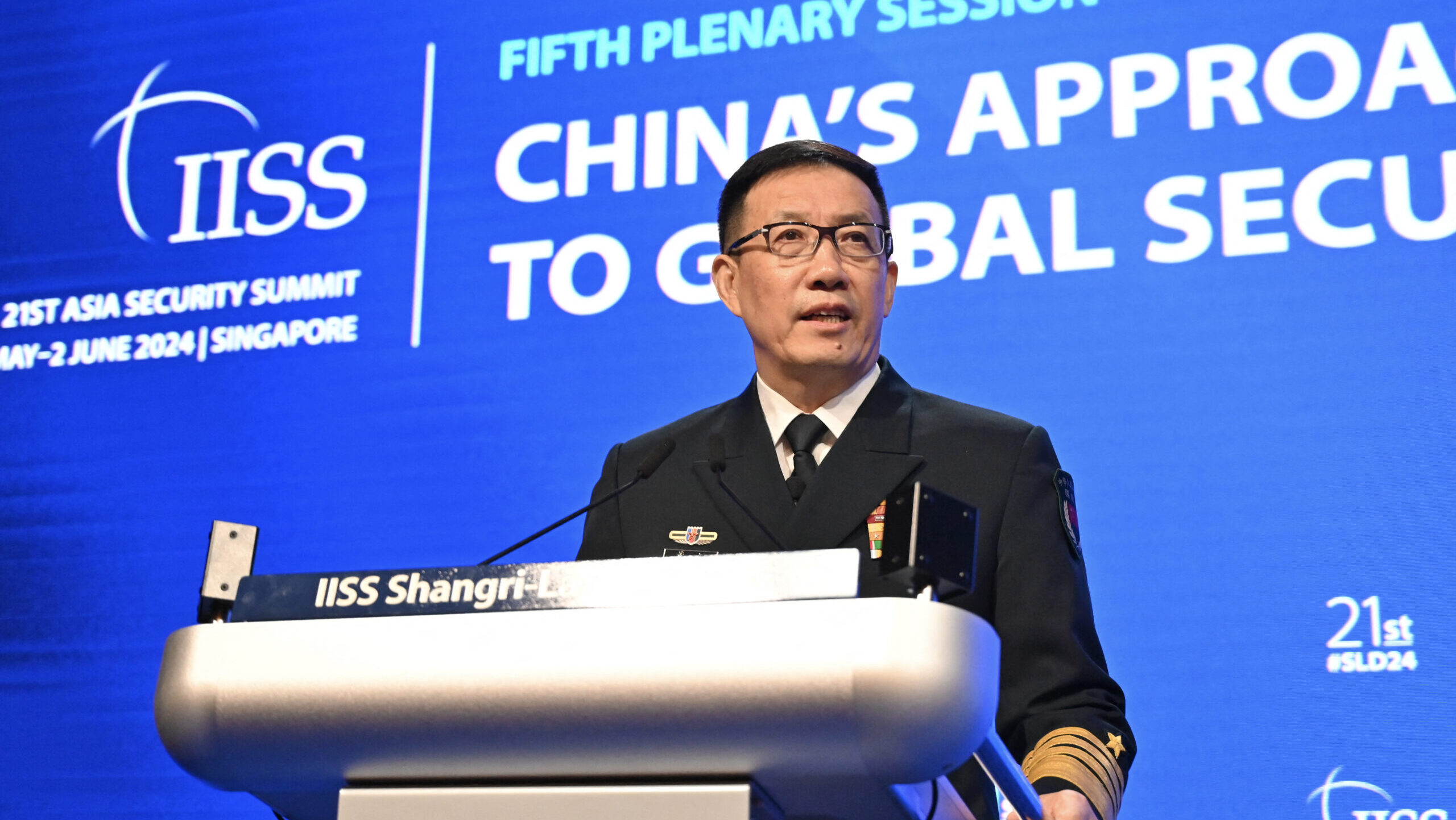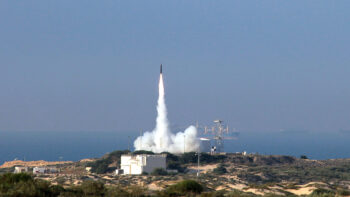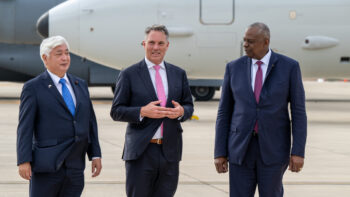
China’s Defence Minister Dong Jun speaks during the 21st Shangri-La Dialogue summit at the Shangri-La Hotel in Singapore on June 2, 2024. (Photo by NHAC NGUYEN/AFP via Getty Images)
SHANGRI LA DIALOGUE — In a rambling, repetitive address in his first international appearance, the Chinese defense minister told the world that the chances for a peaceful reunification with Taiwan have been “eroded” in the face of what he called the “fanatical statements” by the new Taiwanese president.
“Anyone who dares to separate Taiwan from China will only end up in self-destruction,” Adm. Dong Jun said here in remarks liberally sprinkled with aggressive imagery and threats. “Those fanatical separatist statements have revealed their betrayal of the Chinese nation and their ancestors, and will be nailed to the pillar of shame in history.”
The “fanatical statements” was apparently in refence to the inauguration speech by Taiwanese President Lai Ching-te, in which he called on China “to cease their political and military intimidation against Taiwan” and told his own people to defend themselves against the “many threats and attempts of infiltration from China.”
Since Lai took office, China has deployed dozens of ships and flown aircraft inside Taiwan’s Air Defense Identification Zone, clearly practising an armed blockade and perhaps demonstrating some of the moves it might make in the event of an invasion.
“As a defense minister, to be very honest with you, we are prepared for all kinds of extreme situations that may happen for Taiwan independence, and we are very confident in our ability to deter Taiwan independence,” Dong said.
“That was the most consistently intimidating speech we’ve heard from China at a Shangri-La Dialogue,” professor Rory Medcalf, head of the National Security College at Australian National University, wrote in a tweet. “Defence Minister Dong Jun warned of ‘resolute’ military action against Taiwan’s ‘fanatical’ forces. Then said ‘there is a limit to our restraint’ against the Philippines.”
Dong pressed China’s case about Taiwan for so long during the Q&A part of the address that the moderator, Bastian Giegerich, CEO of the sponsoring International Institute for Strategic Studies, was compelled to interrupt and note that he’d been speaking for 10 minutes and could he address some other questions. Dong, a former naval commander who was appointed in late December after his predecessor, Li Shangfu, was abruptly removed from office, basically ignored the interruption and repeated much of what he’d already said about the island state.
A few hours after Dong’s speech, Singapore’s Defense Minister Ng Eng Hen made a characteristically humorous — but gently biting — observation about it: “He would have gone on for half-an-hour about Taiwan if you’d let him.”
Bonnie Glaser, a top China expert at the German Marshall Fund, said Dong’s presentation was “an embarrassment” for China, calling it “a little amateurish.” Asked about new policies, she pointed to the admiral’s statement that the chances for peaceful unification have been “eroded” and said the largely negative message of his speech signaled “a new level of confrontation.”
Dong’s speech came a day after he met with US Defense Secretary Lloyd Austin, who told him that China should not “use Taiwan’s political transition — part of a normal, routine democratic process — as a pretext for coercive measures.”
Ironically, after saying that the United Nation’s powers should be strengthened, Dong went on to say that UN Convention on the Law of the Sea ruling on the South China Sea was wrong and accused the United States of “trying to use UNCLOS to violate other nations sovereignty.” Using interesting language, he added that “every year they commit freedom of navigation operations against many countries in the South China Sea. We are all victims of this behavior. If this is freedom of navigation, then I don’t understand what rules mean any more,” Dong said.
He compared the behavior of the Philippines in defending its Exclusive Economic Zone to the conduct of a criminal who bumps your car from behind and then tries to “blackmail” you.
“I think this is not even morally right and China’s law enforcement actions are very restrained,” he said about China’s use of water cannons and ramming Philippine ships. “Our tolerance for deliberate provocations will be limited.”






















